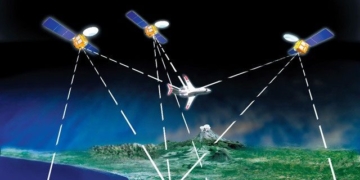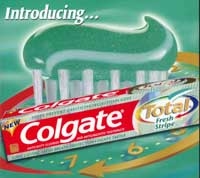Japan has the second-lowest murder rate in the world, yet it is home to a notoriously eerie forest known as Aokigahara.
1. Raw horse meat is a popular dish in Japan. It is called basashi, sliced thin, and served raw.
2. Over 70% of Japan is mountainous, and the country has more than 200 volcanoes.
3. A single melon (specifically a yellow-fleshed variety) can sell for over 31,473 yen (300 USD) in Japan.
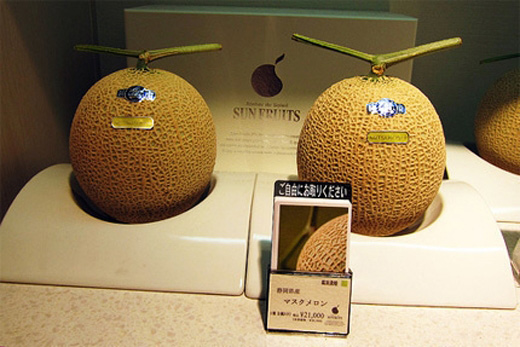
A single yellow-fleshed melon from Japan can sell for up to 300 USD.
4. The literacy rate in Japan is nearly 100%.
5. Japan even has automated beer vending machines.
6. The average lifespan of Japanese people is four years longer than that of Americans. Perhaps Americans should eat more basashi!
7. Shaving one’s head is a way to apologize in Japan.
8. Japan has the second-lowest murder rate in the world, yet it is home to the extremely eerie suicide forest known as Aokigahara. The skeleton in the picture was taken from this forest.
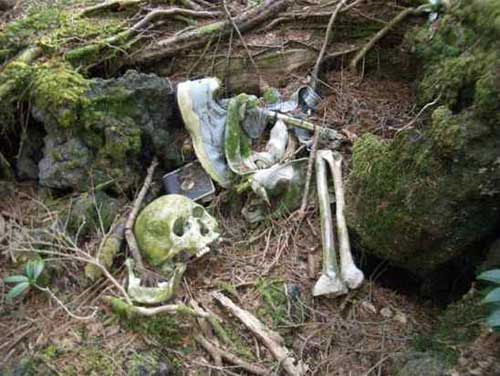
The skeleton in the photo was taken from Aokigahara forest.
9. Japan has 15 Nobel Prize winners (in the fields of medicine, chemistry, and physics), 3 recipients of the Fields Medal, and 1 winner of the Gauss Prize.
10. Traditionally, young sumo wrestlers must bathe the older wrestlers.
11. Japan consists of over 6,800 islands.
12. The culture of the Upper Paleolithic era, dating back about 3,000 years BC, is believed to be the first inhabitants of Japan.
13. Movies and anime account for 60% of the entertainment in the country. The anime industry is so successful that there are nearly 130 voice acting schools here.
14. In the past, Japan’s court system had an extremely high conviction rate of 99%.
15. Japanese prisoners (as of 2003) worked at an average of 117% of their labor productivity.
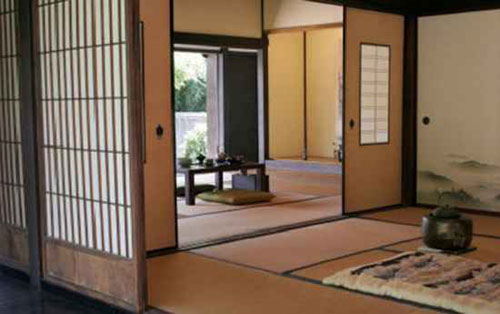
If the house has tatami mats, the floor can be raised from 2.54 to 5.08 cm, indicating that you should take off your shoes.
16. The way floors are constructed indicates when you should take off your shoes or sandals. In the entrance of a Japanese house, the floor is often raised about 15.24 cm, indicating that you should remove your shoes and wear slippers. If the house has tatami mats, the floor can be raised from 2.54 to 5.08 cm, indicating that you should take off your slippers.
17. The Japanese have a penchant for drinking coffee. Japan’s coffee imports amount to approximately 85% of Jamaica’s coffee production.
18. There are very few immigrants in Japan, with 98% being native residents.
19. Sumo is the traditional sport of the land of the rising sun.
20. Baseball is also a popular sport in this country due to American influence after World War II.
21. In Japan, slurping noodles is seen as a sign of enjoyment and indirectly compliments the cook.
22. There are over 1,500 earthquakes that occur each year, most of which are minor.
23. Tsukiji is the largest fish market in Tokyo, consuming about 2,000 tons of seafood daily.
24. Whale meat is not a delicacy in Japan, but it is still hunted for research purposes.
25. In Japan, karaoke means singing without an orchestra.
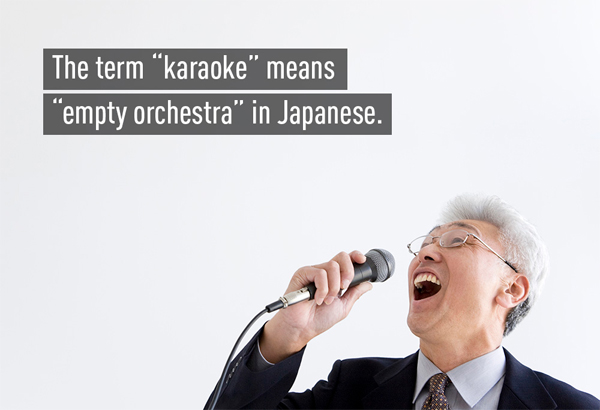 Karaoke means singing without an orchestra.
Karaoke means singing without an orchestra.
26. Most ATMs in Japan do not accept foreign domestic ATM cards. If you want to use one, you must go to the post office.
27. To become a professional fugu chef, one must undergo 11 years of training. Fugu chefs must eat the fish they prepare during training to pass their courses.
28. Geisha means performers of the arts, and the first geisha in Japan were actually men.
29. Many companies in Japan have morning exercise routines for their employees.
30. The first people migrated to this country about 30,000 years ago.
31. According to the laws of the Yakuza – a Japanese mafia organization, if someone commits a first offense, they will have the last joint of their pinky finger cut off.
32. Japan produces about 60% of the world’s anime.
33. There are nearly 130 schools for voice acting for anime throughout the country.
34. 23% of Japan’s population is over 65 years old.
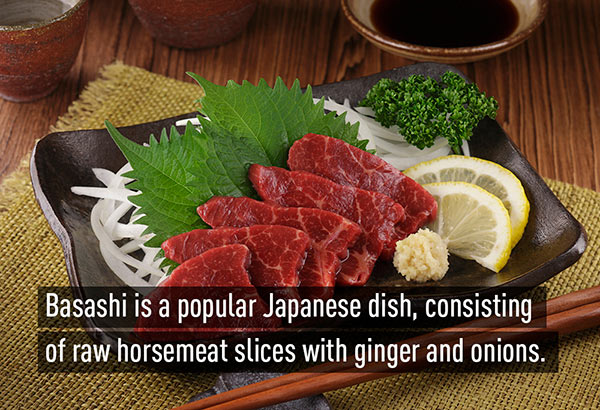 Raw horse meat is a popular dish in Japan.
Raw horse meat is a popular dish in Japan.
35. The population of Tokyo is about 13 million people.
36. Tokyo is the second most expensive city in the world.
37. Sushi is considered a street food.
38. The most expensive bluefin tuna in the world was sold in Japan for 735,000 USD.
39. Blowing your nose in public is considered rude.
40. In Japan, there are dog and cat cafes for those who love these animals.
41. Japan takes pride in being the country with the longest-standing constitutional monarchy in the world.
42. The only mandatory foreign language in schools in Japan is English.
43. Japan is also known as the land of the rising sun.
44. In Japan, before you step into a bathtub, you must wash your body with clean water first, then you can soak in the tub.
45. When you visit Japan, if you do not wear a mask outside, Japanese people may frown and think you are impolite, feeling uncomfortable and reluctant to be close to you. Therefore, wearing a mask is quite important in Japan.
46. Japanese Haiku is the shortest poetry form in the world, consisting of only 3 lines.
47. Toilets in Japan come in both traditional and modern styles. Therefore, you should ask for instructions on how to use them to avoid any awkward situations.
48. Japan prohibits talking on the phone on trains and buses. Riding on trains or buses in Japan is always quiet, like in a library. People read books, listen to music, text, work, or nap, but no one makes noise or disturbs others. If they do talk, it is very soft and gentle.
49. Another interesting fact in Japan is that, even without tips, you still receive the best services and enthusiastic help from staff.
50. This country has the shortest escalator in the world, with only 5 steps. This escalator is located in the basement of the Archives Bureau in Kawasaki.
51. The job of pushing people onto the subway: The subways in Japan have so many passengers during peak hours that there are special workers called oshiya – people who push others onto the train. The first oshiya were students working part-time.
52. Kit Kats with flavors of sake, wasabi, sweet potato, or chili: The name of Kit Kat in Japanese sounds similar to “kitto katsu,” meaning “you will surely win.” That is why they are often given to students as a good luck gift before exams. Like many other foods, Japanese Kit Kats come in a variety of unusual flavors, from chili and wasabi to green tea and pear.
53. Pet robots for children: Owning a pet in Japan is as costly as buying a new car. Therefore, children are increasingly provided with toy robots that mimic household pets.
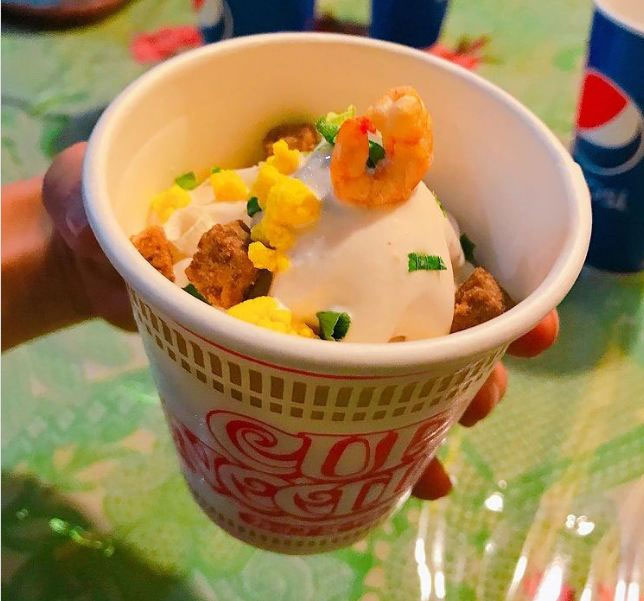
54. Ice cream with flavors of noodles, meat, or beer: Ice cream comes in many different flavors, but foodies should definitely try Japanese ice cream for all its diversity.
What’s surprising is not that you can find ice cream with flavors like noodles, beer, or horse meat, but that it is sold on every street corner and has a huge demand.
55. An Island Ruled by Rabbits: During World War II, several rabbits were brought to Okunoshima Island for a secret scientific research program. The program was later canceled, and the rabbits were released. Now, the island attracts thousands of tourists who are overwhelmed by these creatures.
56. A World Leader in Robotics: Japan is the country that owns more than half of the world’s industrial robots. With famous robots such as QRIO, ASIMO, and Aibo… Additionally, Japan is the sixth largest automobile manufacturer among the top 15 car manufacturers globally.
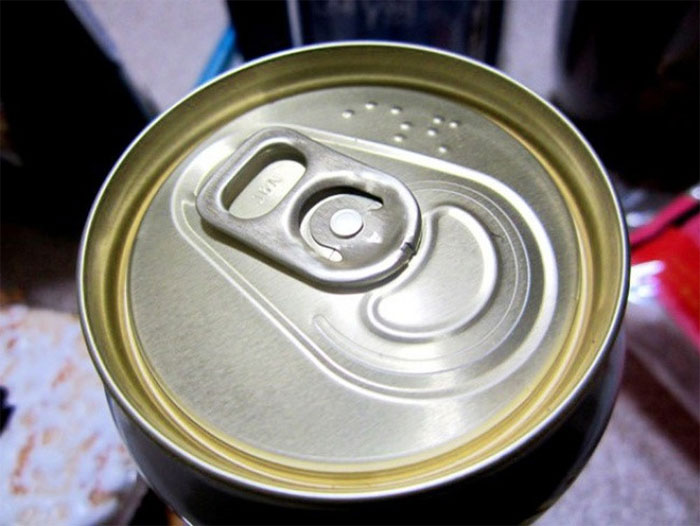
Beer Can in Japan.
57. Raised Letters on Beer Cans: Japanese beer cans feature raised lettering to help blind individuals understand the information printed on them. Clearly, blind people also have the right to enjoy beer just like everyone else.
58. Bicycle Culture: Japan is a densely populated country, which limits the construction of parking lots. As a result, bicycles have become the primary mode of transportation. You can freely use bicycles to explore everywhere and park outside shopping centers, train stations, or other areas.
59. Capsule Hotel Rooms: This is considered one of the “craziest” inventions in Japan. Instead of traditional rooms, hotel accommodations in Japan are designed as very special capsules. They resemble cocoons, thus not taking up much space to build. These types of hotels are accessible to everyone, regardless of wealth or social status.

















































